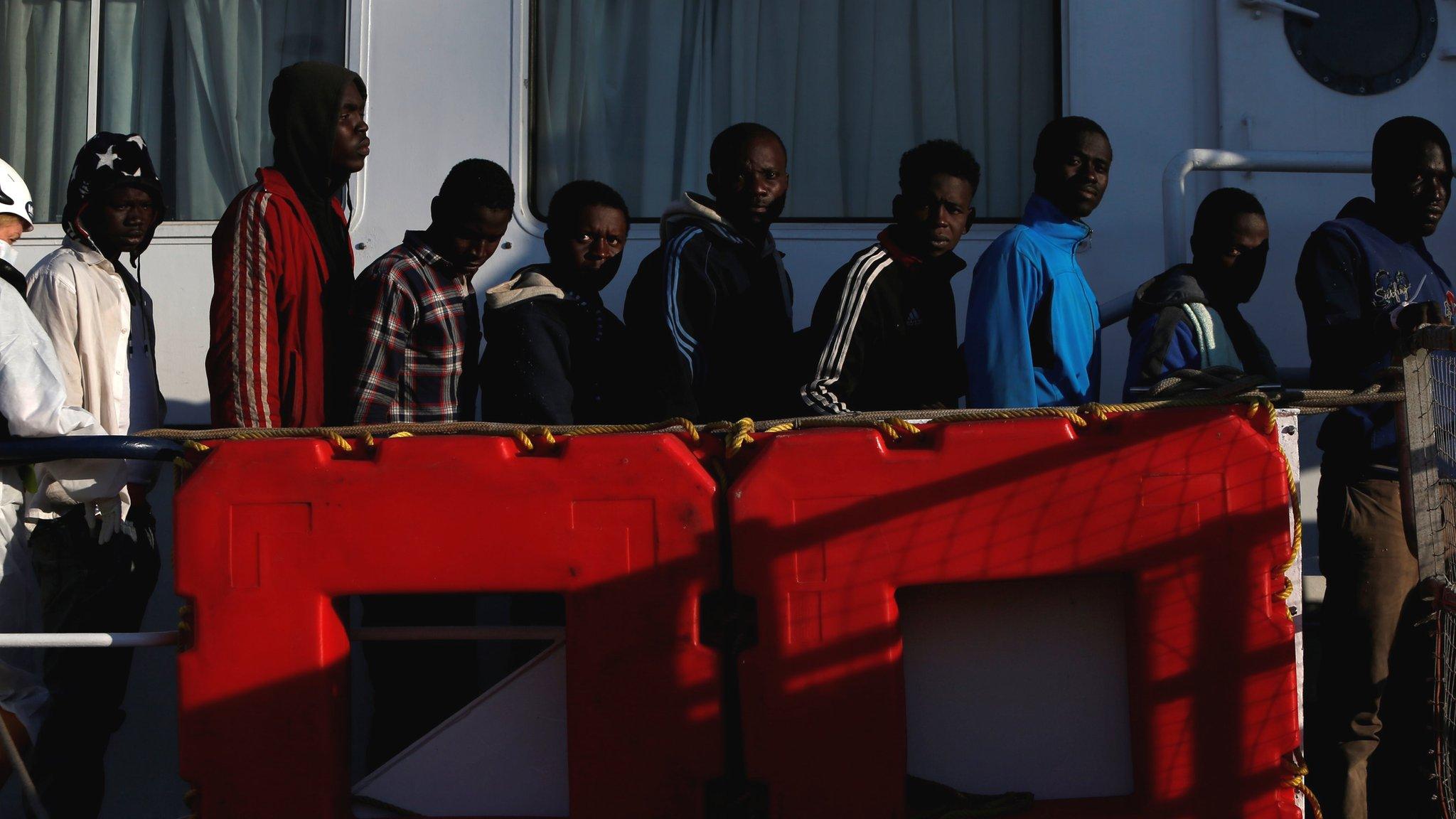Migrant ship capture: Maltese armed forces take control of hijacked tanker
- Published
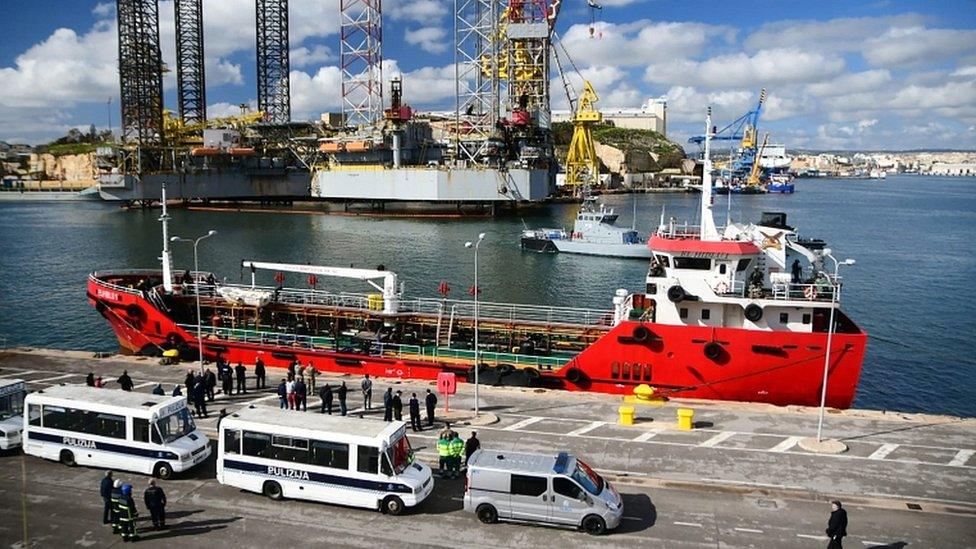
The tanker, Elhiblu 1, has now docked in the Maltese capital, Valletta
Malta's armed forces have taken control of a tanker that was allegedly seized by migrants off Libya on Wednesday.
The tanker, Elhiblu 1, has docked in the Maltese capital Valletta. More than 100 migrants on board are expected to be handed over to police.
The migrants had been rescued by the ship but reportedly hijacked it after being told they would be returned to Libya.
They are said to have told the captain to head north towards Europe instead.
In a statement, the Armed Forces of Malta (AFM) said they had established communications with the captain of the ship when it was still heading towards Malta.
The captain said he was not in control of the vessel and that he and his crew were being forced and threatened by a number of migrants to sail to Malta.
A patrol vessel stopped the tanker from entering Maltese territorial waters, and a special operations unit team was dispatched to board and secure the vessel, the AFM said in a statement.
The team was backed up by several naval vessels and a helicopter.
The ship has now been handed over to the police for further investigations, the AFM said.
Malta's prime minister, Joseph Muscat, has said all international rules will be followed as police investigate the incident on the vessel.
It is not clear what will now happen to the migrants, but they've reached the destination they wanted, says the BBC's Southern Europe correspondent James Reynolds.
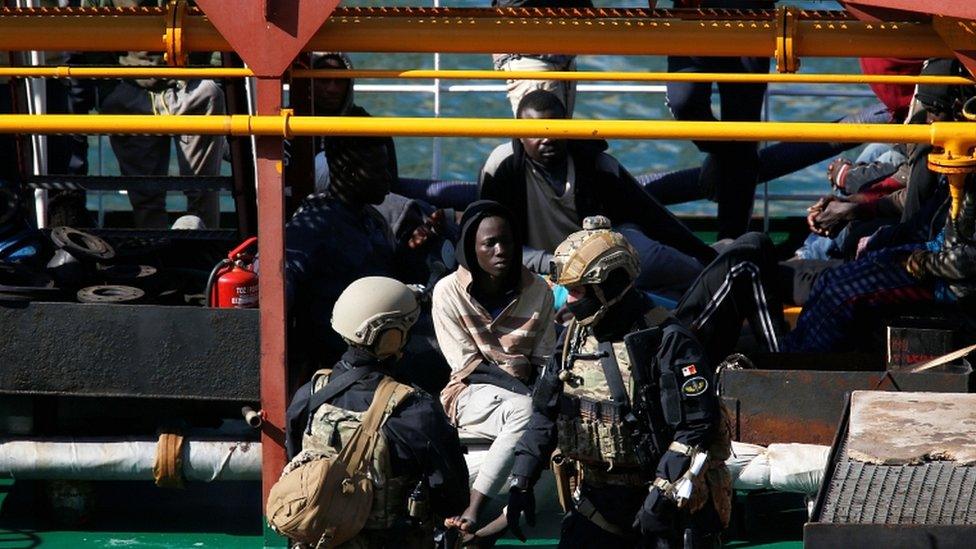
Maltese special forces soldiers guard a group of migrants on the Elhiblu 1
Italy's interior minister, Matteo Salvini, had earlier called the migrants "pirates" and said they would not be allowed to dock in Italy.
He described the act as "the first piracy on the high seas with migrants", according to the Associated Press news agency.
Hassiba Hadjsahraoui of Medical aid group MSF told the BBC's Newsday programme that the incident showed the despair of people who made the dangerous crossing over the Mediterranean.
She said the group had been involved in a similar case last November when migrants panicked and refused to leave a Panamanian-flagged cargo ship that rescued them and took them back to Libya.
'Reckless and irresponsible'
The latest incident comes as the EU says it is ending navy patrols in the Mediterranean. The EU says the decision to suspend Operation Sophia in September follows a request by Italy.
The mission was put in place four years ago to deter people smugglers and rescue migrants trying to reach Europe by boat. Tens of thousands have been saved.
Lately, the mission has largely targeted smuggling networks as the number of people making the crossing dropped sharply following a controversial deal between the EU and Libya.
But Ms Hadjsahraoui said the decision to end the maritime deployments was irresponsible and reckless and the EU-backed Libyan coastguard was weak and unfit for the job of doing search and rescues, returning those they did rescue to "inhumane detention centres in Libya".
"The reality is people are continuing to flee Libya and the most direct outcome is going to be that commercial ships are going to have to rescue people.
"We are in a situation where ships in Mediterranean, including commercial ones, are under a legal obligation to rescue people, this is international law. They also cannot take people back to Libya, because Libya isn't safe, and that again is the law, but they're not allowed to disembark in Italy."
However, Mr Salvini, the leader of the right-wing League party, has blamed Operation Sophia for continuing to bring rescued migrants to Italian shores.
He has been at the centre of a number of international rows over his refusal to allow migrant ships to dock in Italian ports.
Migrant arrivals from North Africa and the Middle East have fallen since reaching a peak in 2015.
An estimated 150,000 illegal crossings were registered by Frontex, the European Border and Coastguard Agency, last year, the lowest amount since 2013.
- Published27 March 2019
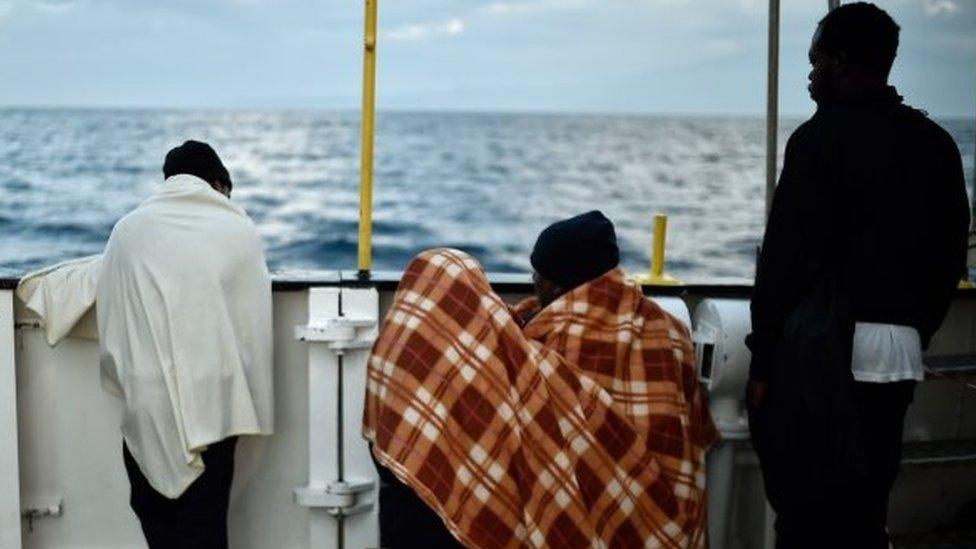
- Published21 June 2018
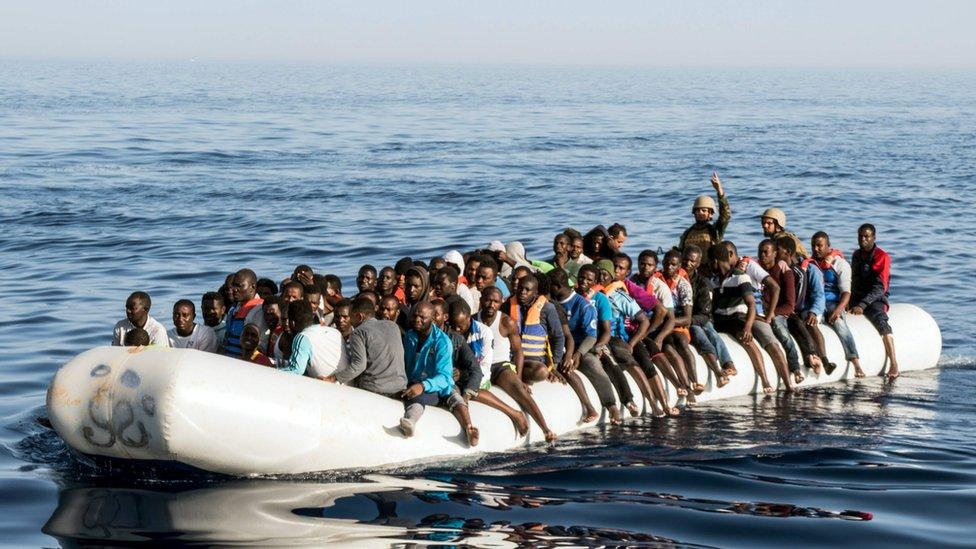
- Published19 October 2018
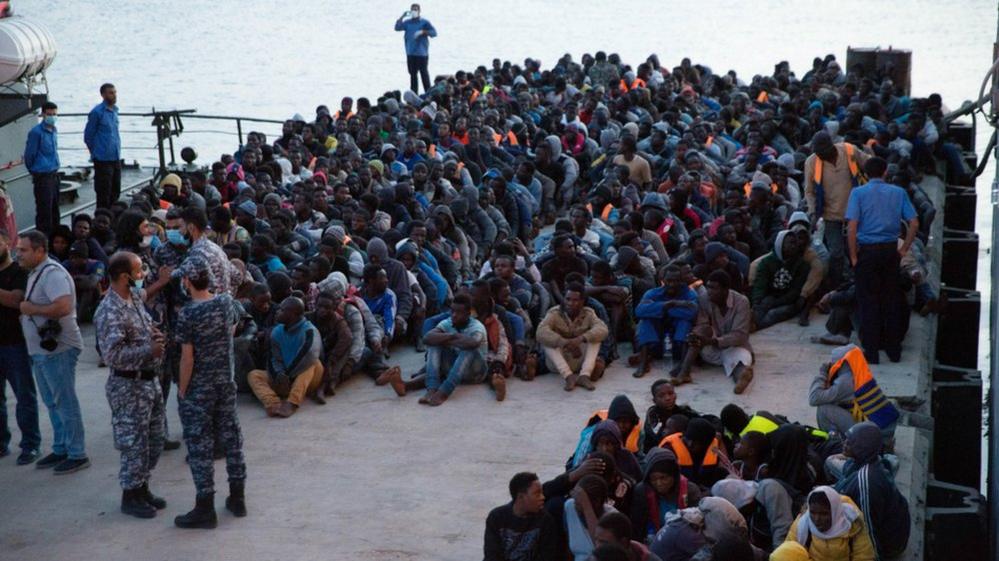
- Published24 May 2017
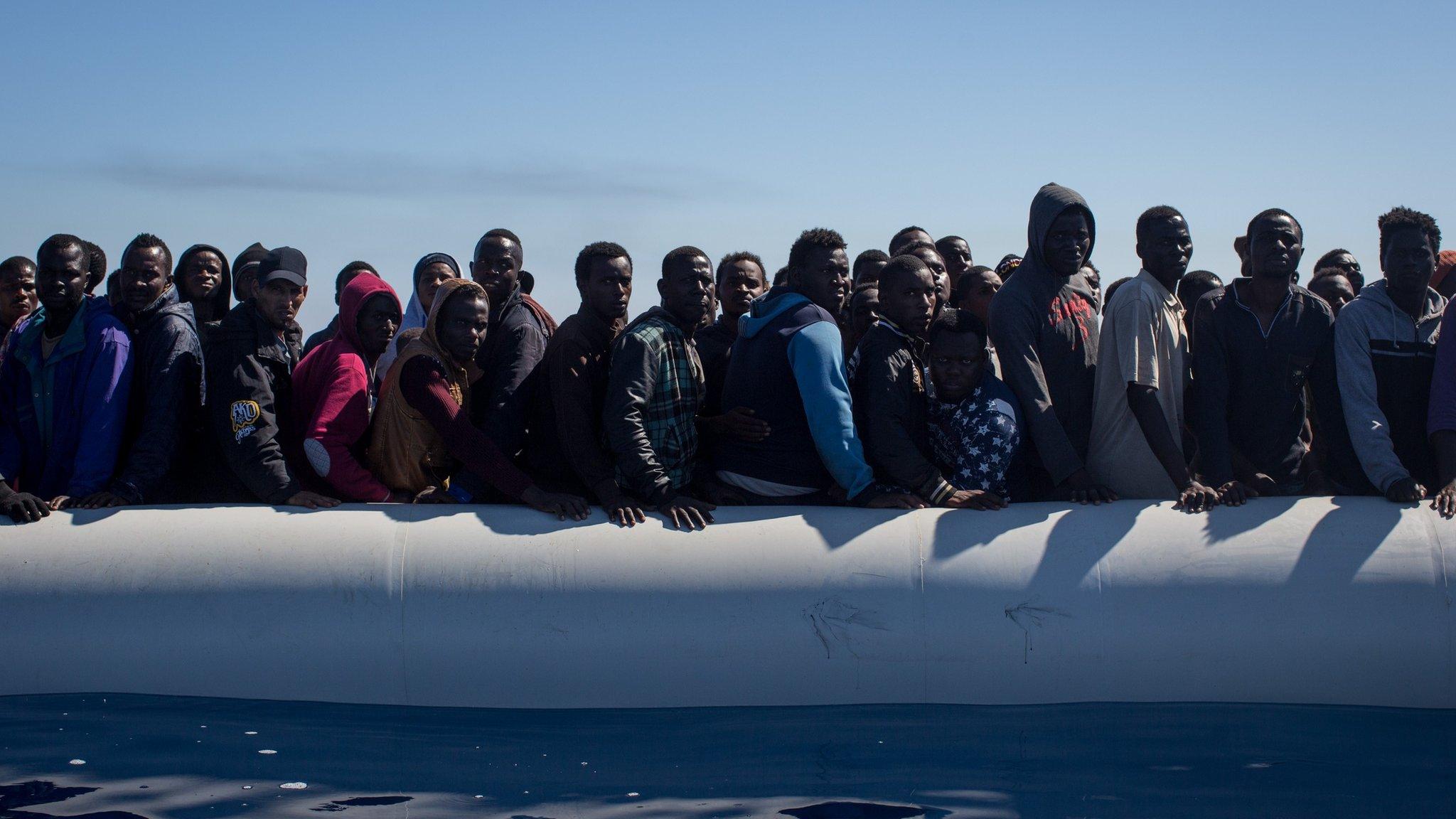
- Published13 May 2016
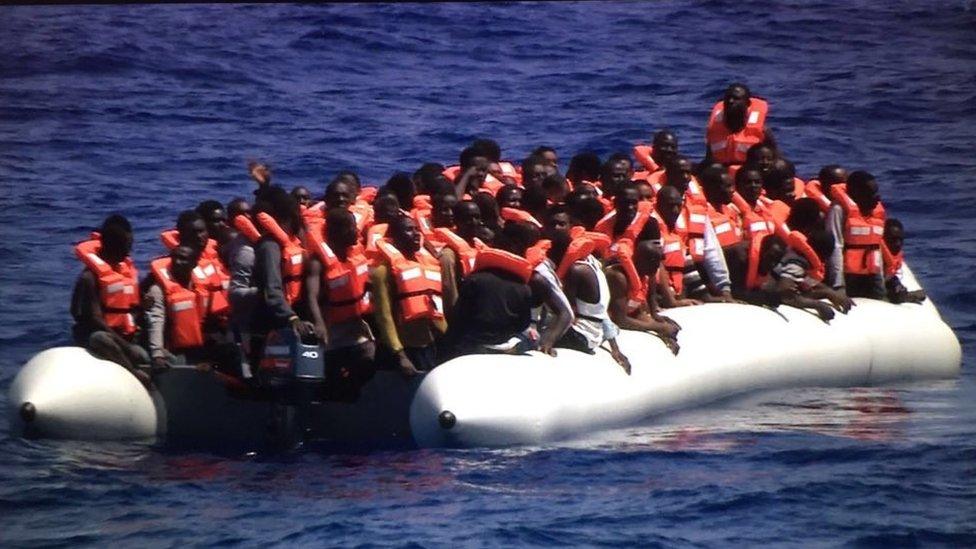
- Published7 March 2016
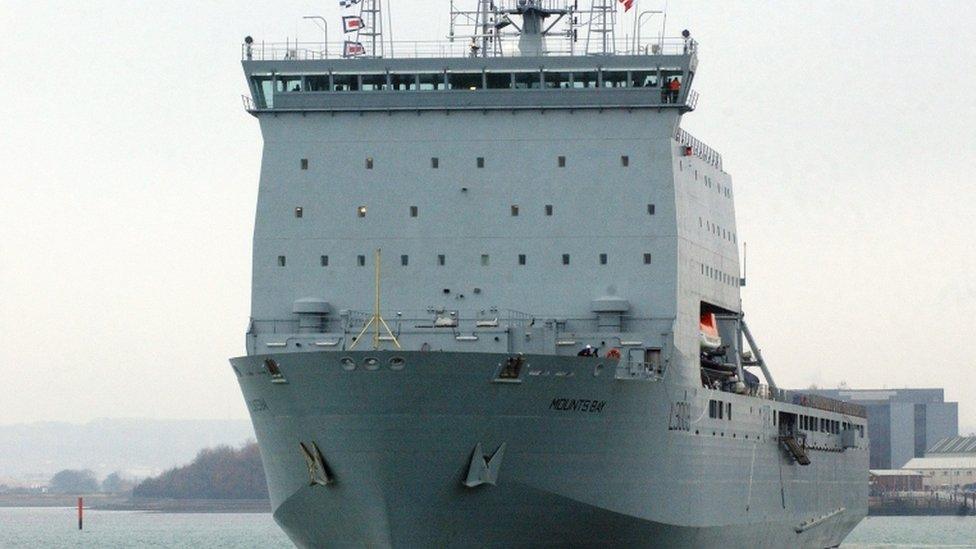
- Published9 May 2017
